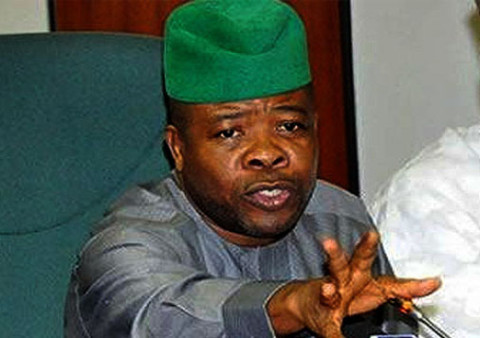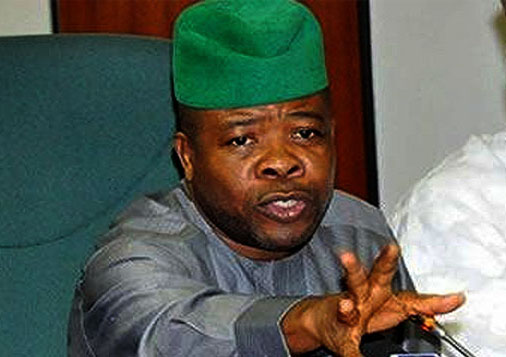
Teddy Oscar, Abuja
House of Representatives’ deputy speaker, Rt. Hon. Emeka Ihedioha, has outlined concrete steps parliaments in Africa can take to support the battle against corruption in their countries.
Ihedioha, who spoke at the 45th Commonwealth Parliamentary Conference (Africa region) in Arusha, Tanzania at the weekend, identified corruption as a major factor stifling development in African countries.
According to a statement issued by his chief press secretary, Oke Epia, Ihedioha particularly noted that parliaments have a duty to be on the vanguard against the scourge.
Top on the list of measures parliaments can take are the need to enact legislations which protect whistle blowers and anti-corruption crusaders; Freedom of Information (FoI) laws, which empower citizens to have access to information from all government agencies; encourage press freedom; adequately fund anti-graft agencies and ombudsman bodies including placing them on first line charge of the consolidated revenue of various African countries; and forging partnerships with the media, community-based organisations (CBOs), faith-based organisations (FBOs) and non-governmental organisations (NGOs) in the crusade against graft.
Other measures include making laws that strengthen and re-position the judiciary to strictly enforce a rule of law regime; encourage capacity-building for law-enforcement officials like the police, anti-graft agencies, office of the auditor general and ombudsman bodies through training and retraining; intensify oversight responsibilities of parliaments to ensure that government projects and programmes achieve value-for-money; enact fiscal responsibility acts to guide all concerned on the due processes involved in formulation and implementation of annual budgets/appropriation acts; and enact public procurement acts, which emphasise international best practices in contract regimes and processes.
Ihedioha said efforts by Nigeria’s National Assembly towards tackling graft in the country include passage into law of the Public Procurement Act; Fiscal Responsibility Act; and the Freedom of Information Act.
“We are presently considering a Bill to amend the Nigerian Constitution to separate the office of the attorney general from the minister of justice. The proposed attorney general will be an independent professional lawyer whose appointment and removal will not be controlled by the executive branch. He is expected to restore the integrity of public prosecutions especially for corruption cases.
“It is also proposed to strengthen the financial independence of the office of the auditor general, attorney general, police and national security agencies by placing them in the first line charge on the Consolidated Revenue Fund (CRF) of Nigeria. This is an attempt to insulate these agencies from financial control and free them up to perform the task of fighting corruption.
“Financial autonomy for the state legislature and the local government are also being canvassed in our proposed amendment. The National Assembly of Nigeria has strengthened her oversight mechanism. Over the last four years, we have exposed corruption through diligent investigation of the activities of several ministries, departments and agencies (MDAs),” Ihedioha said.
Drawing further from Nigeria’s experience, the deputy speaker identified other measures African legislatures can apply in the battle against graft to include institutionalising Monitoring and Evaluation (M&E) systems in MDAs for government projects and programmes; adoption of African Union’s Peer Review Mechanism (AUPRM), where countries can assess the achievements, challenges and shortcomings of others, using the Millennium Development Goals (MDGs) as standards; encouragement of private initiatives of bodies like Mo Foundation, which honours past public officials that distinguished themselves in terms of honesty and integrity; adopting a code of ethical conduct for all parliamentarians and other public servants to regulate their conduct with respect to conflict of interest situations; reform of systems of tax collection to eliminate areas of leakages; and encouragement of African Nations that are yet to ratify the 2003 United Nations Convention against corruption and other international protocols on anti-corruption to do so and to domesticate these protocols/conventions as part of their National Laws.
Debunking claims in some quarters that corruption is culturally linked to Africa, Ihedioha identified six common denominators of corruption in African countries to include weak legislative and judicial; lax enforcement of the rule of law; high levels of political patronage; low independence and professionalism on the part of public and private sectors; weak civil society lacking the means to hold perpetrators to account; and lack of free and vibrant press.







